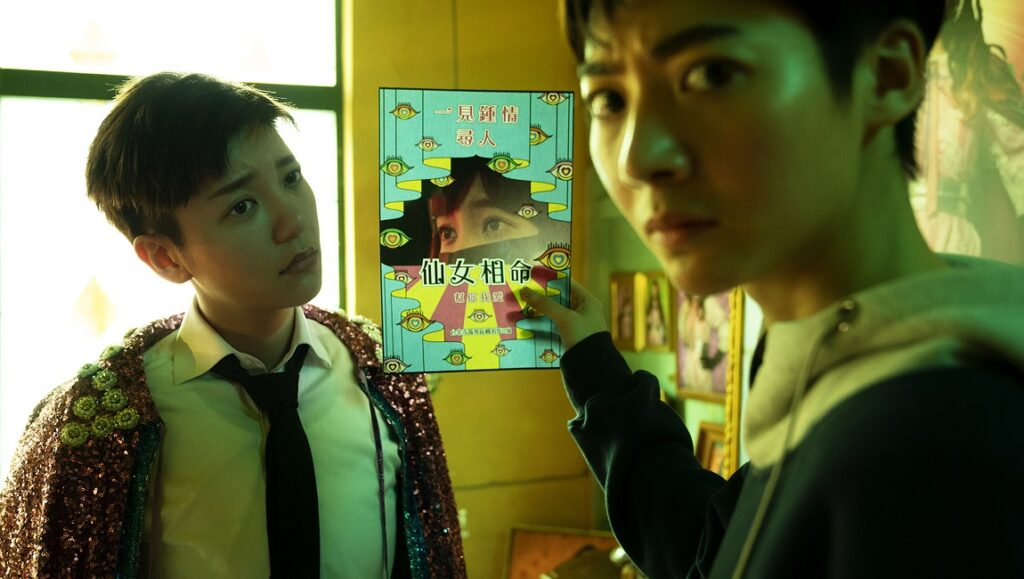The idea of an adaptation of Shakespeare’s As You Like It, set in an ultra-modern Taipei with an all-female cast, certainly sounds appealing. As does the idea of transmuting Shakespeare’s Edenic Forest of Arden into an internet-free zone of play and gender non-conformity. Unfortunately, filmmakers Chen Hung-i and Muni Wei appear to have been satisfied with only the very cursory reading of this most sophisticated of comedies: at every turn, their adaptation takes what was special in Shakespeare and enacts the opposite. The heroine Rosalind, among the greatest female characters in all of literature, the epitome of poise, ingenuity, confidence, and creativity, is sidelined in her own story.
Rather than serving as author of the play’s action, its heart and soul and conscience, she becomes confused, passive, desperate to find her father, unsure of her feelings for Orlando or of his for her. In the play, Rosalind disguises herself as a boy in order to educate the man she loves in the ways of romance, in how to love her properly rather than in the childish doggerel he pins to every tree in Arden. In this film, there’s no clear reason why she does it, and the educative aspect of the interactions is replaced by a bizarre scavenger hunt to find her father that only serves to further undermine her independence — despite the film’s bird-flipping stance on “the patriarchy who would not allow female actors on the stage,” this is still a far more conservative story than Shakespeare’s. And indeed, the movie’s cutesy aesthetic, all candy colors and animated curlicues and hearts and stars and handicrafts, might as well be the kind of juvenilia the play-Rosalind rejects in Orlando.
The rest of the cast is served no better. Rosalind’s best friend Celia again falls for Orlando’s brother Oliver, but this time in the middle of the story, before he’s amended his villainous ways and proved himself worthy of love. Phebe is transformed into Angel, a psychic, and her story is more or less as it is in the play, while Touchstone, the fool, is hardly present, and when he is, his romance with Audrey (now Silver) is played for schmaltz, not acidic satire. But at least he exists — the play’s other philosophical foil for Rosalind, the melancholic Jaques (who gives the “All the world’s a stage” speech), is wholly absent, with only a couple of his most famous lines moved into a treacly pop tune that carries none of the weight or meaning of his cynical disquisition on the seven stages of life.
The play’s best line is likewise missing, Rosalind’s admonition to Orlando that “men have died from time to time, and worms have eaten them, but not for love.” It’s the essence of the play, the key to Rosalind’s actions and the very heart of her character. It’s what makes her so compelling and fascinating a figure, but there’s no trace of that Rosalind here. This As We Like It is mere pop confection, all icing and no cake. What it ultimately offers is a stomach ache.
Published as part of IFFR 2021 — Dispatch 2.


Comments are closed.